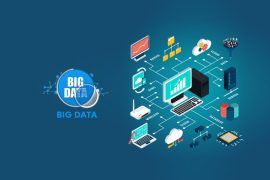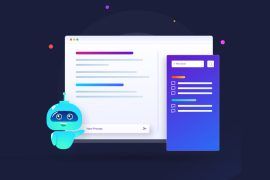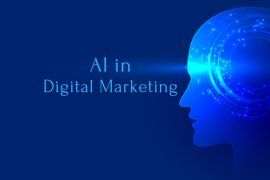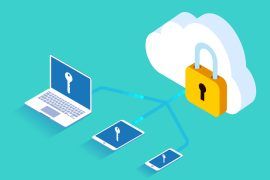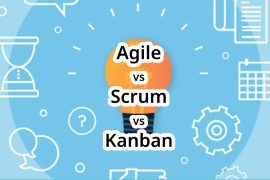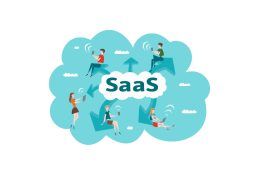Artificial intelligence (AI) plays a remarkable role in B2B marketing, and AI technologies like machine learning and algorithms can automate systems and influence marketing approaches that help B2B businesses tailor user experiences to the optimum.
AI does not invoke the images of robots in Sci-fi movies anymore, and the fear of robots replacing humans is still on. But as AI advances and businesses use it more and more, it has become clear that AI complements human intelligence rather than replacing it.
Businesses are using AI to build better consumer experiences in every industry. The following are eight ways that AI can power B2B Marketing:
Table of Contents
8 Ways Artificial Intelligence is Transforming B2B Marketing
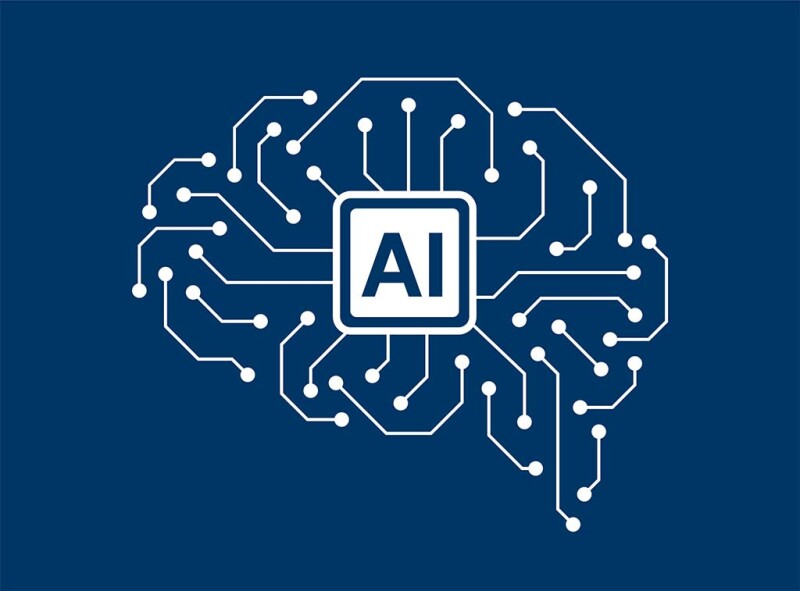
1. Influences Lead Generation and Scores
The two challenges marketers face today are generating high-quality leads and a high number of leads. The problems lie in data collection, management, and analysis, and by integrating AI into the lead generation process, businesses can automate data collection and analysis. Companies have had an increase in quantity and quality lead generation.
AI can catch more accurate, active data across channels and inaccessible sources; human marketers sometimes fail to achieve this. B2B marketing can get more leads and create and enforce lead scoring systems equipped with AI to improve visibility and data accuracy.
AI helps businesses to use less time in manual data collection and allows more time to use the data to enforce strategic methods.
2. Betters Consumer Insights
For B2Bs to achieve personalized targets from when a consumer enters the sales cornet, developing accurate buyer personas and ICPs, Ideal Consumer Profiles, is essential.
AI, social media, and analytics can help businesses reach their goals. To intensify buyer profiles and build customized environments, insights into your customers’ pain points, buying demeanors, or targets of rival companies become more significant with AI.
With genuine customer profiles and ICPs, businesses can approach probable and existent customers with the right content at the right time.
3. Improves Consumer Experiences
AI is beneficial to technology-savvy consumers. AI assistants like Alexa and Siri have already paved the way for voice-assisted technology. Consumers aren’t just not utilizing voice searches to browse the internet; they have better buying assistance.
AI apps are constantly learning and growing more intuitive to understand users’ lingo patterns and net-surfing habits to customize results which help to understand users’ preferences better. B2Bs benefit from this by optimizing their website and consolidating voice searches.
Their websites get more traffic and potential customers and help develop inclusive design techniques that make websites accessible to consumers.
4. Customizes B2B Marketing
The thought that AI might dehumanize your brand’s content marketing strategy and appear robotic is unfounded in the present scenario. AI is a personalization control tool you may use to your benefit. Consumers want businesses to comprehend their unique individual needs and preferences and are ready to discard a brand if it doesn’t meet their expectations. Overlooking customization of personal needs can render the available pitches entirely redundant.
As per Salesforce’s State of the Connected Customer report, 66% of customers expect businesses to understand their requirements and expectations thoroughly. AI-driven marketing facilitates the buyers’ experience by helping businesses collect buyer behavior insights and creates actual buyer profiles. This data collected to curate hyper-targeted marketing like landing pages, blog content, emails, digital promotions, etc., helps business growth.
From there, B2B markets can trigger timely, personalized dialogues with customers, appealing to their pain points and expecting their desires. AI can scale the exchanges through marketing automation for better buying experiences.
5. Optimizes Website/App Performance
Website analytics can be so complex that cracking them is a strenuous task. Tools that are powered by AI, like Google Analytics Intelligence, use machine intelligence to pack complex data into readily digestible and actionable insights.
The best thing about AI is that marketers can immediately be alerted of sudden or unavoidable data shifts. If there were whimsical spikes in a vital metric like a website’s bounce rate or the number of people leaving your website just after a single-page session, then AI tools would send real-time alerts and other relevant data.
Businesses can learn and rectify the spikes that damage their business and bring in a change in the metric or keep a close watch.
The same applies to mobile apps, which will be the leading future medium for B2B marketing; 65% of B2B businesses offer a mobile app to enhance B2B marketing potential.
According to Statista, 43% of users delete a mobile app after a month or so because they find it of no use or not user-friendly.
6. Facilitates SEO
AI-powered SEO tools save time by sourcing relevant search words. They can heavily broadcast new content by specifying trending topics, predicting keywords, and helping forward-thinking targets. It optimizes old content for SERP by executing active keywords and giving updates. AI keeps your current content refreshed and your new content ahead of the curve.
7. Grows Consumer Engagement
You need to be careful about the time of publishing your content. AI helps you understand this by driving leading consumers to ensure that you post content at the right time. The best time to post content on a blog and social media is in the afternoon/evening, and the best time to send business emails is in the morning. AI watches your unique website data and consumer behaviors to identify the right time to publish your content. AI-powered tools schedule to post your content, seeing globalization potential in view.
8. Enhances Customer Service and Customer Relationships
The number one priority for B2B marketing should be fostering positive customer relationships. The question is how to provide individualized, omnichannel customer service to the hundreds of accounts within your sales channel.
Today’s leading use of AI for B2B marketers is customer service automation. AI applications like chatbots and Interactive Voice Response (IVR) systems at both pre-and post-sale consumer service touchpoints can fulfill transactional requests, order tracking, account updates, etc.
9. Use of Human Resources alongside AI
Human agents can concentrate on client inquiries and services that require more attention and compassion by letting AI handle more specific tasks. The clients that receive more attentive service go a long way in boosting positive consumer experiences.
39% of B2B companies want self-service options that allow AI applications to provide fast and timely 24/7 customer assistance across numerous channels. AI is one of the best practices for companies with enterprise ambitions.
Takeaway
AI isn’t just helping you cover the marketing distance—it has turned into a revolution. Marketing remains one of AI’s most potent uses and significantly impacts businesses and customers. With the AI mechanisms and wisdom to offer value at every touchpoint, B2B consumers can appreciate more profitable brand connections and experiences.

